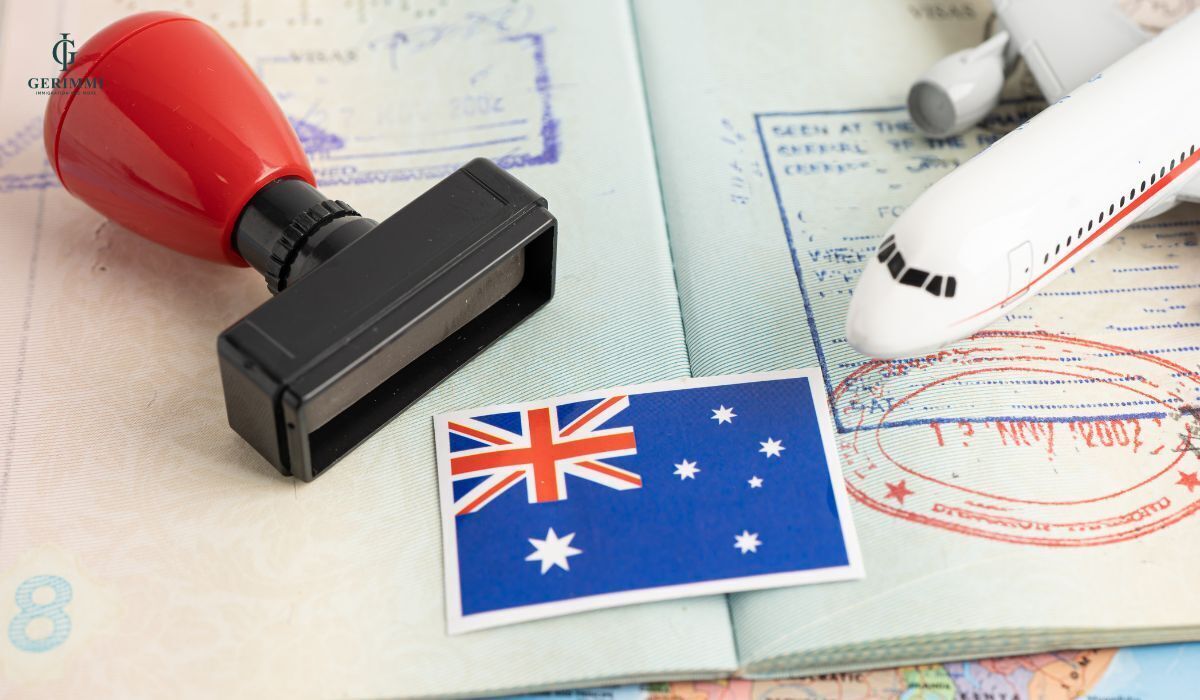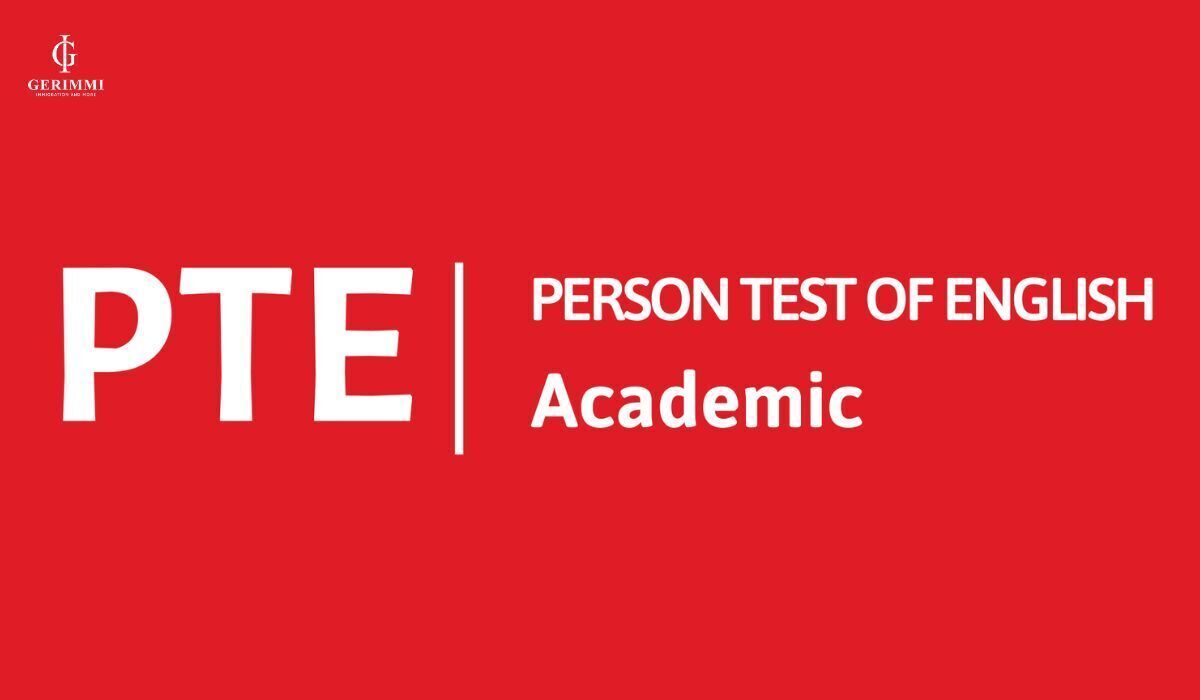Vocational study in Australia in 2026 is becoming an attractive choice for many young Vietnamese people thanks to reasonable costs, high employment and settlement opportunities. However, to be accepted into the vocational training program and apply for an Australian student visa, the PTE Academic English certificate is a mandatory condition.
1. Overview of the Australian vocational training system
Vocational Training in Australia (VET -Vocational Education and Training) is one of the most attractive options for international students who want to study and have the opportunity to work and settle in Australia.Vocational training programs focus on practical skills, helping students quickly integrate into the labor market in fields such as: technology, restaurants - hotels, beauty, health care, construction, engineering, and many other industries.
Compared to university study abroad, vocational study abroad in Australia has a shorter study time, more reasonable cost but still provides an internationally recognized degree. Graduates can:
- Work in Australia immediately under the post-study work visa policy.
- Transfer to university if you want to improve your qualifications.
- Expanding opportunities for long-term settlement through skilled workers.
1.1. Vocational training system in Australia
The VET system is the backbone of Australia’s vocational education and training system. It is a government-managed model that combines education with practical vocational training to help students become highly skilled and work-ready upon completion of their studies.
1.1.1 Industry
The range of courses available in the Australian VET program includes:
- Engineering and Technology Group: mechanical, electronic, civil engineering, information technology.
- Service group: hotel management, restaurant, tourism, cooking, bartending.
- Health care group - community: nursing, child care, elderly care
- Creative and artistic group: graphic design, photography, hairdressing, beauty, fashion.
- Business - finance group: accounting, marketing, business administration, logistics.
Each profession is closely linked to real-life recruitment needs, helping students increase their employment opportunities and settle in Australia after graduation.

1.1.2 Types of certificates and levels
The vocational certificate system in Australia is divided into many levels, suitable for the level and goals of each student:
|
Level |
Program name |
Describe |
|
Certificate I – II |
Basic level |
Learn introductory skills, simple work, study time 6-12 months. |
|
Certificate III |
Intermediate vocational level |
Students can work independently, study time is 1 year. |
|
Certificate IV |
Supervisor/Technician Qualifications |
Develop in-depth professional skills, study time 12-18 months. |
|
Diploma / Advanced Diploma |
Higher level, equivalent to college |
Prepare for senior management or specialist positions, study 1.5-2 years. |
1.1.3 Training time
Apprenticeships in Australia usually last from 6 months to 2 years, depending on the certificate level.
Some specialized professions such as cooking, nursing or engineering may require longer programs.
In particular, vocational study in Australia 2026 allows international students to work 24 hours/week during the semester and full-time during the holidays, helping to cover expenses and gain practical experience.
1.2. Types of visas commonly applied for vocational study abroad
International students studying VET in Australia need a valid Australian vocational student visa. There are currently four common visas related to vocational and skills training.
1.2.1 Subclass 407
The Subclass 407 visa allows foreign nationals to undertake vocational training or professional skills development in Australia. Suitable for those who already have a professional background and want to improve their practical skills.
- Duration: maximum 2 years
- English requirements: equivalent to PTE 42.
- An Australian government approved sponsoring organization is required.

1.2.2 Visa 482
The Subclass 482 visa is a work visa for skilled workers sponsored by Australian businesses, replacing the previous 457 visa. Although not a student visa, the 482 is often chosen by vocational students after graduation if they are sponsored by an Australian business.
- Duration: 2-4 years depending on the industry.
- English requirements: Minimum PTE 36-50, depending on stream (Short/Medium Term).
- Opportunity: can transfer to permanent resident visa (PR) after a stable working period.
1.2.3 Subclass 500
The Subclass 500 visa is the official visa for international students studying vocational education and training (VET). This is the visa you need to apply for if you plan to study vocational education and training in Australia in 2026.
- Allows full-time study at CRICOS-recognized institutions.
- Legally work 24 hours/week during the semester.
- Can bring dependents (spouse, children).
- English requirement: PTE Academic ≥ 42 or equivalent.
1.2.4 Subclass 572
The Subclass 572 visa was once reserved for international students studying VET (Certificate I–IV, Diploma, Advanced Diploma). However, from 1/7/2016, this visa has stopped being issued, and all VET students now use the Subclass 500 visa. However, understanding the Subclass 572 is still important to understand the history of the Australian vocational student visa system.
1.3. Link between vocational training and the ability to work or settle in Australia
The Australian Government encourages vocational students because this is a group that directly meets the demand for highly skilled human resources. VET graduates can stay and work legally and upgrade their visa to permanent residence if eligible.
1.3.1 Working time
- During study time: Even though they are studying vocational training, students can still work up to 24 hours/week outside of vocational training hours.
- After graduation: can apply for a temporary work visa (Temporary Graduate Visa - Subclass 485) or visa 482 if sponsored by an enterprise.
This helps students earn extra income and gain work experience in Australia - an important factor in their immigration application.

1.3.2 Switch to another visa
After completing the vocational course, students can:
- Switch to a 485 visa to stay in Australia to work temporarily.
- Apply for a 482 visa if sponsored by a business in an occupation on the Skilled Occupation List.
- Apply for skilled migration (visa 189, 190, 491) if you meet the requirements for experience, occupation and PTE score.
1.3.3 Settlement point (if applicable)
Studying a trade in Australia can help you increase your immigration points if your field of study is on the priority occupation list.
For example, nursing, engineering, cooking, and construction are often on the Skilled Occupation List (SOL). Settlement points are awarded for achieving a high level of English (PTE ≥ 65 or ≥ 79). Practical work experience in Australia in a related occupation also helps to add significant points.
2. Overview of PTE Academic and its role in vocational study abroad
PTE Academic (Pearson Test of English Academic) is an international English proficiency test organized by Pearson PLC, officially recognized by the Australian government for all types of study, work and settlement visas.
PTE comprehensively evaluates the 4 skills of Listening - Speaking - Reading - Writing, using AI technology and 100% automatic marking machine, helping to provide objective, transparent and fast results (only 24-48 hours). PTE scores range from 10 - 90, corresponding to English levels from basic to proficient.
2.1 PTE Academic is a widely recognized English certificate in Australia
PTE Academic (Pearson Test of English Academic) is an exam that assesses 4 English skills (Listening - Speaking - Reading - Writing) using AI technology. This is a certificate accepted by the Australian Department of Immigration (DHA) for all study, work and settlement visas. PTE scores range from 10-90, equivalent to English levels fromFunctional arrive Superior, helping international students demonstrate language proficiency when applying for vocational study abroad.
2.2 The role of PTE in vocational training (VET) applications in Australia
When applying for vocational programs (Certificate I – IV, Diploma, Advanced Diploma), students need to achieve a minimum PTE score of 36 - 42 to be accepted by vocational schools or TAFE. At the same time, the Subclass 500 vocational study visa also requires a PTE score of ≥ 42 or equivalent. If the score is not enough, students can take an additional ELICOS English course before officially enrolling.

2.3 PTE helps expand work and settlement opportunities after graduation
After completing the vocational program, PTE score is an important condition to apply for visa 407, 485 or visa 482. People with a high PTE score (≥ 50) are eligible for “Competent English” – the basic standard for skilled settlement visas 189, 190, 491. Achieving “Proficient” (≥ 65) or “Superior” (≥ 79) also helps increase points in the settlement application (PR).
2.4 Reasons why PTE is preferred over IELTS in vocational study in Australia
The PTE exam has the advantage of being completely computer-based, scored by an automatic system, with results delivered within 48 hours and accepted by more than 95% of Australian vocational schools. The PTE exam focuses on practical communication skills, which is very suitable for vocational training, internships and work environments in Australia. Thanks to that, PTE has become the top choice for Vietnamese students when preparing to study vocational training in Australia in 2026.
3. PTE score requirement for visa types and certificate I, II, III, IV, Diploma programs
3.1 For visas
|
Visa type |
Minimum PTE score |
Intended use |
|
Visa 500 (Student Visa) |
≥ 42 overall |
Vocational study abroad (Certificate I–IV, Diploma, Advanced Diploma) |
|
Visa 500 + ELICOS |
≥ 36 overall |
Vocational training combined with ELICOS English course |
|
Visa 407 (Training Visa) |
≥ 36–42 overall |
Participate in vocational training or skills development programs |
|
Visa 482 (Skilled Worker Visa) |
≥ 50 each skill – Competent English |
Work in Australia after completing vocational training |
|
Visa 189 / 190 / 491 (Skilled Migration) |
≥ 50 (Competent), ≥ 65 (Proficient), ≥ 79 (Superior) |
Permanent skilled settlement in Australia |
3.2 For certificates
|
Vocational education and training (VET) level |
Reference PTE score (Overall / Each skill) |
Program Description |
|
Certificate I – II |
Overall ~ 42 / ≥ 36 each skill |
Basic course, introductory skills training |
|
Certificate III – IV |
Overall 45–50 / ≥ 36–40 each skill |
Intermediate vocational to supervisory level |
|
Diploma / Advanced Diploma |
Overall ≥ 45 / ≥ 36 each skill |
Professional skills training, job preparation or university study |
|
Vocational Graduate Certificate / Diploma |
Overall ≥ 50 / ≥ 42 each skill |
The highest level in VET, preparing for settlement or visa conversion |
4. The appropriate PTE preparation and score roadmap for vocational study in Australia in 2026
To achieve a PTE score of 42 - 50 (standard for a Subclass 500 vocational study visa and Certificate I - IV programs), students need to have an early and systematic study plan. Studying on the right schedule for 3 - 6 months will not only help you achieve your target score but also improve your academic English ability, creating a solid foundation for studying and settling in Australia.
Step 1: Determine your test score and time target
First, determine the score you need to achieve: PTE ≥ 42 for vocational training, 45 - 50 for Diploma, and ≥ 65 if aiming for permanent settlement. Once you know your clear goal, you should plan to review the test early, ideally 6 months before the visa application date, to have time to practice, take mock tests and handle arising situations.
Step 2: Assess your current level
Start by taking the PTE test online or register for a mock test at a Pearson-authorized center to know your current level. If your score is below 36, spend 1-2 months strengthening your grammar and communication skills; if you score 36-42, focus on practicing skills according to the PTE structure; if you score above 50, you should practice test-taking techniques and timing.
Step 3: Plan your study for the four skills
PTE Academic consists of four main skills:Speaking, Writing, Reading and ListeningYou should allocate your study schedule reasonably: the first three weeks focus on speaking and writing, the next three weeks practice reading and listening, the last two weeks do a full mock test to get used to the real test pace. Combine the Pearson Practice App tool, record your speaking part for self-correction, write a 200-300 word essay and practice typing speed.

Step 4: Periodically test and adjust strategy
Regular practice tests help you track your progress and know your strengths and weaknesses. Every 2-3 weeks, take a full PTE mock test, score it, and record your results for each skill for comparison. If your Listening or Writing scores are low, spend more time improving them. When your practice score reaches 45 overall or higher, you are confident enough to take the real test.
Step 5: Take the real test and send the results
When you feel ready, book your official test at Pearson PTE -There are test centers in Hanoi, Ho Chi Minh City and Da Nang. Results will be returned within 24 - 48 hours and can be sent directly to the school or attached to the visa application. If the score is not satisfactory, you are allowed to retake the test after 7 days without any limit.
Step 6: Maintain and improve your English
After reaching your target score, you should continue to practice communication every day to maintain your form. Listening to podcasts, watching international news, joining an English club or working part-time in an English-speaking environment are the best ways to maintain your reflexes. This habit will help you quickly integrate into the Australian vocational training environment, be confident when interning and have a competitive advantage.

5. Frequently Asked Questions
- How long before applying for studying abroad should I start practicing PTE?
You should start preparing for the test at least 6 months before applying for your visa, so you have time to review, take practice tests and retake the test if necessary. Early preparation helps reduce stress and improve your performance in each skill.
- If I don't have a high enough PTE score, can I still study vocational training in Australia?
Yes. If your PTE score is lower than the required level, you can enrol in an ELICOS English course (10-20 weeks) before starting your main course. This is a popular option with international students.
- Is the PTE test difficult in Vietnam and are the results quick?
The PTE Academic exam is very popular in Vietnam and is available in Hanoi, Ho Chi Minh City, and Da Nang. The test is completely computer-based, scored by AI, and results are available after 24-48 hours, faster than IELTS.
Conclusion
Clearly understanding the PTE score requirement for vocational study in Australia 2026is the first step to help you prepare your study abroad application smoothly and increase your chances of getting a visa. Whether you are just studying a trade, want to work or settle permanently in Australia, achieving a suitable PTE score (from 42 to 65 or above) will open many new doors.

